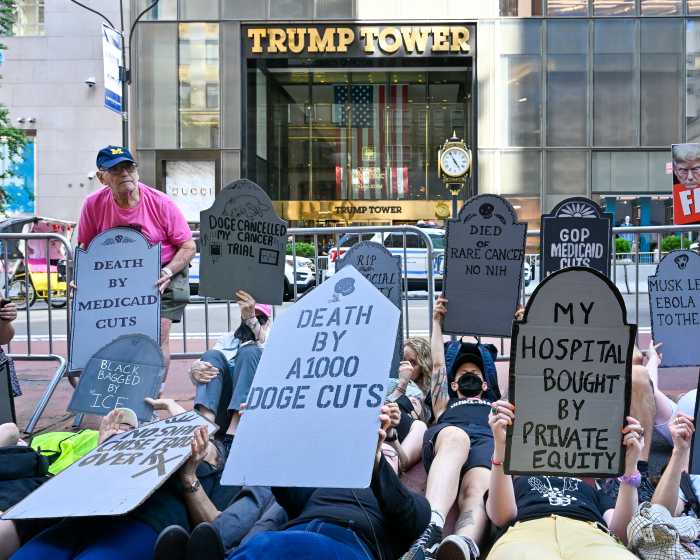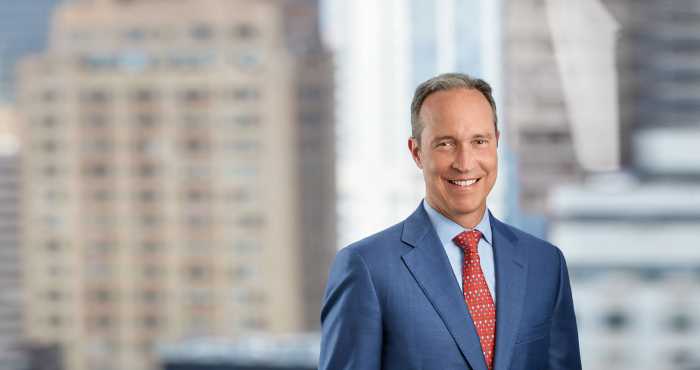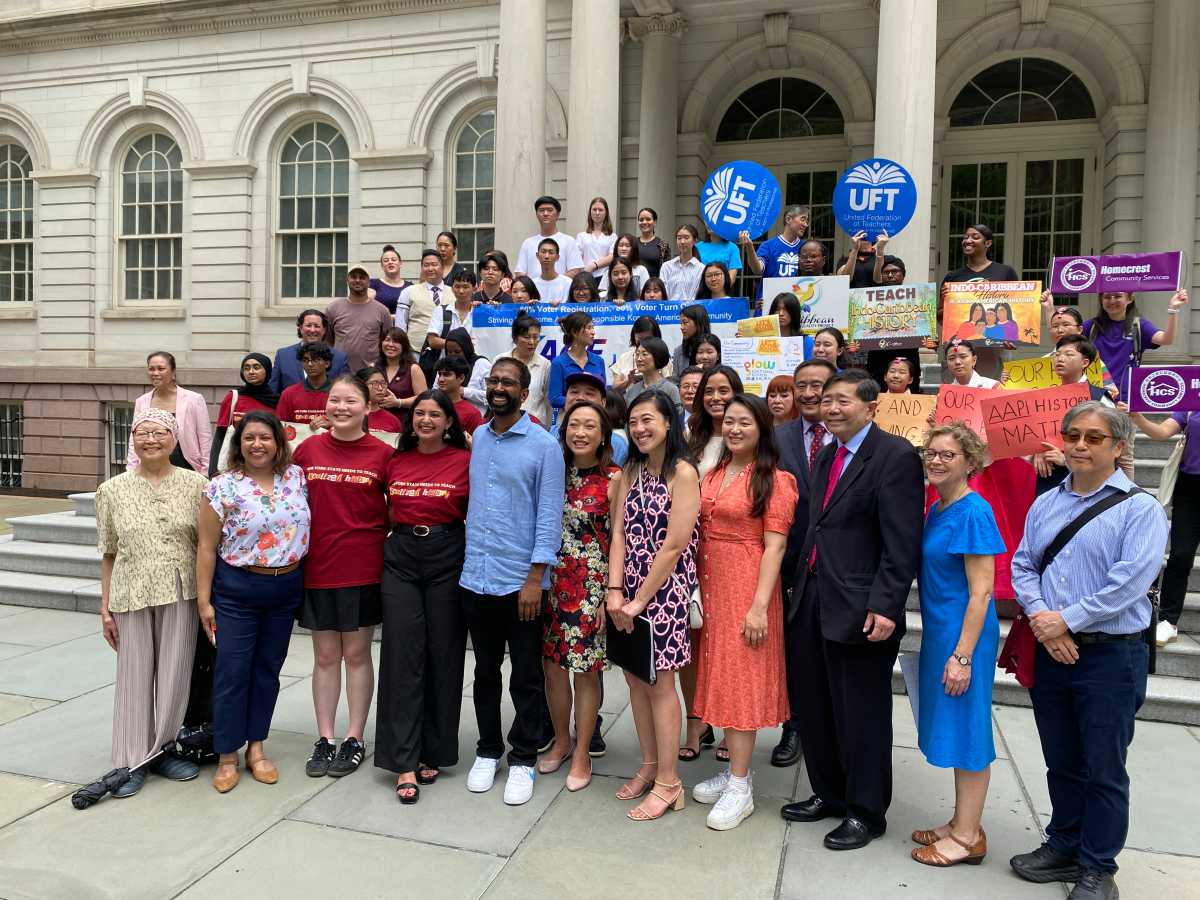
The challenge of eradicating the forced sex work industry in a city that is already a major hub for human trafficking has turned political in Queens.
With less than a month before the Queens district attorney primaries, seven candidates are vying to be the next Democratic nominee, a position vacant after the death of seven-term incumbent Richard Brown. At the top of the political agenda is the dismantling of the local branch of an estimated $150 billion worldwide industry: human trafficking.
“This is a hot-button issue because this is a human rights issue,” said Afua Addo, manager of Gender and Justice Initiatives at Center for Court Innovation, a nonprofit that provides justice reform expertise to the New York Courts. “I think if you’re not on the side of human rights, it would be an obvious deficit to anyone’s campaign.”
Most candidates, including Melinda Katz, Rory Lancman and Betty Lugo, support referring cases to Queens Human Trafficking Intervention Court, a specialized court formed in 2013 that connects victims of human trafficking with such services as housing, employment and counseling as an alternative to incarceration. Defendants are viewed as victims, rather than criminals; their charges are usually dismissed after participation in counseling. In 2017, the court served nearly 600 victims.
“My focus will be on prosecuting those who coerce and force women into sex work, instead of spending time and energy punishing those engaging in consensual exchanges,” said Katz. “I will continue to prioritize efforts that bring traffickers to justice and ensure their victims get the treatment they need, instead of time behind bars."
Recently, candidates Mina Malik and Rory Lancman announced they would not prosecute sex workers. Instead, they vowed to go after "johns" and pimps.
That approach falls short, according to Anita Teekah, senior director of the Anti-Trafficking Program for Safe Horizons, a nonprofit that assists victims (almost half of whom are from Queens). Victims, regardless of immigration status or criminal record, must have the right to access services, she says.
“It’s very difficult to stop doing sex work,” said Teekah. “If a client has a criminal history and they don’t have [immigration] status, a client is not eligible for most services and vocational opportunities available.”
Prior convictions can also keep clients from benefiting from programs like housing, which is the primary concern of most Safe Horizons clients. While courts will dismiss charges and expunge records for victims of human trafficking, they will do this only for prostitution charges. Other charges, even ones directly related to being trafficked, like drugs and gun possession, cannot be dismissed or removed from a record. That creates a barrier to employment and education, further trapping victims.
After years on the front line of the criminal justice system as a public defender, Tiffany Caban, the district attorney candidate endorsed by Rep. Alexandria Ocasio-Cortez, wants to curtail the punitive approach to justice and completely decriminalize sex work.
“We have an enormous responsibility to protect people who are forced into sex work by traffickers,” said Caban. “By decriminalizing consensual sex work, we create a safer environment that will allow the district attorney’s office to better target cases of sex trafficking.”
Candidates Greg Lasak and Betty Lugo have not fully committed themselves to decriminalizing sex work, but they have not rejected the idea, either. Lasak said he would decriminalize sex work, but he is concerned that street prostitution would compromise the quality of life.
Consensual sex workers are a minority, as most are forced, according to The Center for Court Innovation. More than half of forced sex workers are women, and more than one-quarter are children. Vulnerable communities, such as immigrants, runaway youth, and transgender people are most at risk, the Center found.
“It is important to understand that not all sex work is voluntary,” said Malik. “Further, prosecuting sex workers has discriminatorily and disproportionately targeted communities of color, the LGBTQ community and economically disadvantaged neighborhoods."
In Queens, many are exploited through illicit massage businesses, in which a woman, on average, sees more than 20 "johns" a day, coerced and unpaid, said James P. Klein, commander of the NYPD’s vice division. There are four times as many illegal massage parlors as there are Starbucks in this city, according to Restore, a nonprofit working to end sex trafficking in New York. New York state claims the fifth highest number of sex trafficking reports nationwide.
A recent crackdown along a commercial strip of 40th Road brought attention to Queens’ sex trafficking problem. Complaints of women openly selling sex along the street, in storefronts and on playgrounds, resulted in a shutdown of several illicit massage parlors, according to Councilman Peter Koo’s office. The illegal businesses were padlocked, but no arrests were made. Koo, the local councilman, contacted landlords and informed them they had to get involved with preventing illegal activities in their buildings by screening tenants.
“It has improved a little bit. Prostitution is the oldest profession in the world, so it’s hard to change overnight, so we are working on it,” said Koo, who recently started a series of community seminars at the Queens Library to help residents identify and report signs of human trafficking.
Candidates and advocacy groups agree that the solution will be slow and difficult. Even with prostitution arrests down 20 percent and an increase in the arrest of "johns," Safe Horizons reported that the number of victims referred to them has not decreased.
“We are talking about the lowest hanging fruit that happened to get caught because this is such a well-run and well-organized machine — this sale of human beings — and it’s pandemic in our culture,” said Addo. “We have been selling human beings since we incorporated as a nation.”
HUMAN TRAFFICKING BY-THE-NUMBERS
$150 BILLION — The amount of money funneled through the worldwide human trafficking industry
20+ — The number of "johns" women workers see per day, according to the NYPD’s vice division
50%+ — of forced sex workers are women
25%+ — of forced sex workers are children




































